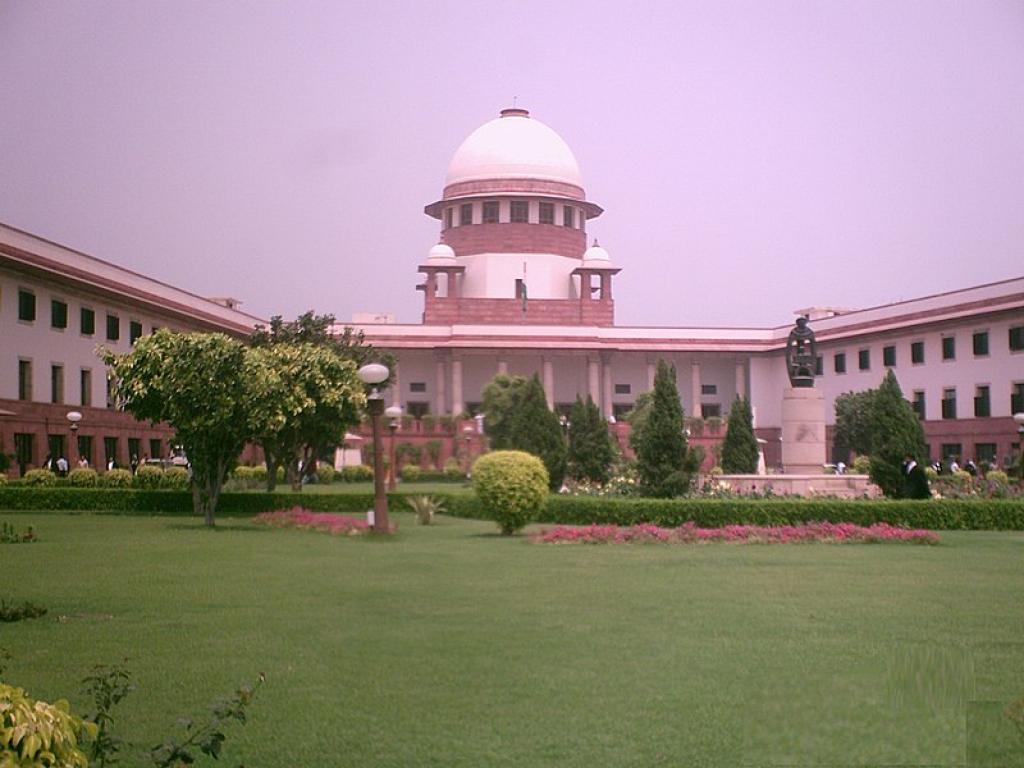

The Supreme Court’s ill-timed order on a case of municipal solid waste that is affecting construction workers illustrates how Indian courts need to take a more nuanced approach



(The Supreme Court building in New Delhi Credit: Wikimedia Commons)
In a year where demonetisation has already caused job losses in the lakhs and hurt the informal sector acutely, another blow has been dealt to the right to life and livelihood of India’s informal sector workers. This time however, it is not an ill-conceived and fatally flawed policy by the government but rather an ill thought-out order by the Supreme Court of India that might end up being the cause of misery for over 35 million workers employed by India’s construction industry.
The orders come from a case that was taken up suo moto by the Apex Court regarding the death of a seven-year-old child due to dengue likely caused by an increase in vector-borne diseases because of the abysmal handling of solid waste in the country.
After having given the state governments repeated orders and many months to comply with its orders to frame state Solid Waste Management policies as required by the Solid Waste Management Rules, 2016, two-thirds of the states had yet to comply with the Court’s orders. Thereafter, in its order dated August 31, 2018, the court imposed costs ranging from Rs 3 lakhs to Rs 5 lakhs on the defaulting states and imposed a blanket ban on construction in the states of Maharashtra, Madhya Pradesh, Uttarakhand and on the Union Territory of Chandigarh.
The broadly-worded order has, in effect, banned all construction activities, including private realty projects and government infrastructure projects such as roads, bridges, metro rails and sea links. The ban, if not stayed, will have a wide-ranging impact, not just on the construction sector, but also on allied sectors such as cement, tiling, electronics and mining.
It is also likely to severely impact construction delivery dates in India, which already faces an acute shortage of housing estimated to be around 18.8 million and 47.4 million dwelling units in urban and rural areas respectively. The orders have already had a negative impact on the share market, as most realty stocks were trading in the negative territory after the order came to public notice.
Further, considering the meandering nature of the course of the justice in this country, this could potentially impact months of work and earnings and will likely lead to mass emigration of construction labour from the three states and the Union Territory in question.
The negative impact this ban is likely to have on over 35 million daily wage construction workers, if not vacated, cannot be overstated. “Over four lakh daily wage workers are employed in the city of Mumbai alone, who are set to lose their daily earnings due to the ban”, said Niranjan Hiranandani, MD of the Hiranandani Group.
At a time where the country is still recovering from the monumental failure that was demonetisation and the ill-implemented Goods and Services Tax or GST regime, this is an ill-timed and ill thought out order from the Supreme Court.
In fact, the orders in this case are fairly reminiscent of the orders of the Supreme Court in the case of State of Tamil Nadu vs K Balu, where the Court had imposed a ban on the sale of liquor within 500 metres along all National Highways in India. The broadly-worded order of the Supreme Court had led to extreme hardship for hotels and restaurants and the loss of employment for thousands of people across the country. Due to the huge backlash and severe negative impact on the sector, the Apex Court was forced to backtrack and clarify its stance through another order, where it clarified that the ban did not apply to licensed establishments within municipal areas.
While it cannot, for a moment, be denied that there is an urgent need to tackle the solid waste management crisis in India, less extraordinary and damaging measures could have been adopted by the Supreme Court of India. Solutions ranging from a ban only on new construction, penalisation limited to state administration and the setting out of guidelines to ensure adoption of zero waste technologies have already been made.
Perhaps, the lesson to be learnt here is that the courts in this country need to take a more nuanced approach that considers potential impact not only on those it seeks to rightly penalise but also on all others. The next hearing is scheduled on October 9, 2018. It is hoped that the Court will vacate the order and avoid the potential immense harm it could cause to some of the most vulnerable people in India.
We are a voice to you; you have been a support to us. Together we build journalism that is independent, credible and fearless. You can further help us by making a donation. This will mean a lot for our ability to bring you news, perspectives and analysis from the ground so that we can make change together.

Comments are moderated and will be published only after the site moderator’s approval. Please use a genuine email ID and provide your name. Selected comments may also be used in the ‘Letters’ section of the Down To Earth print edition.